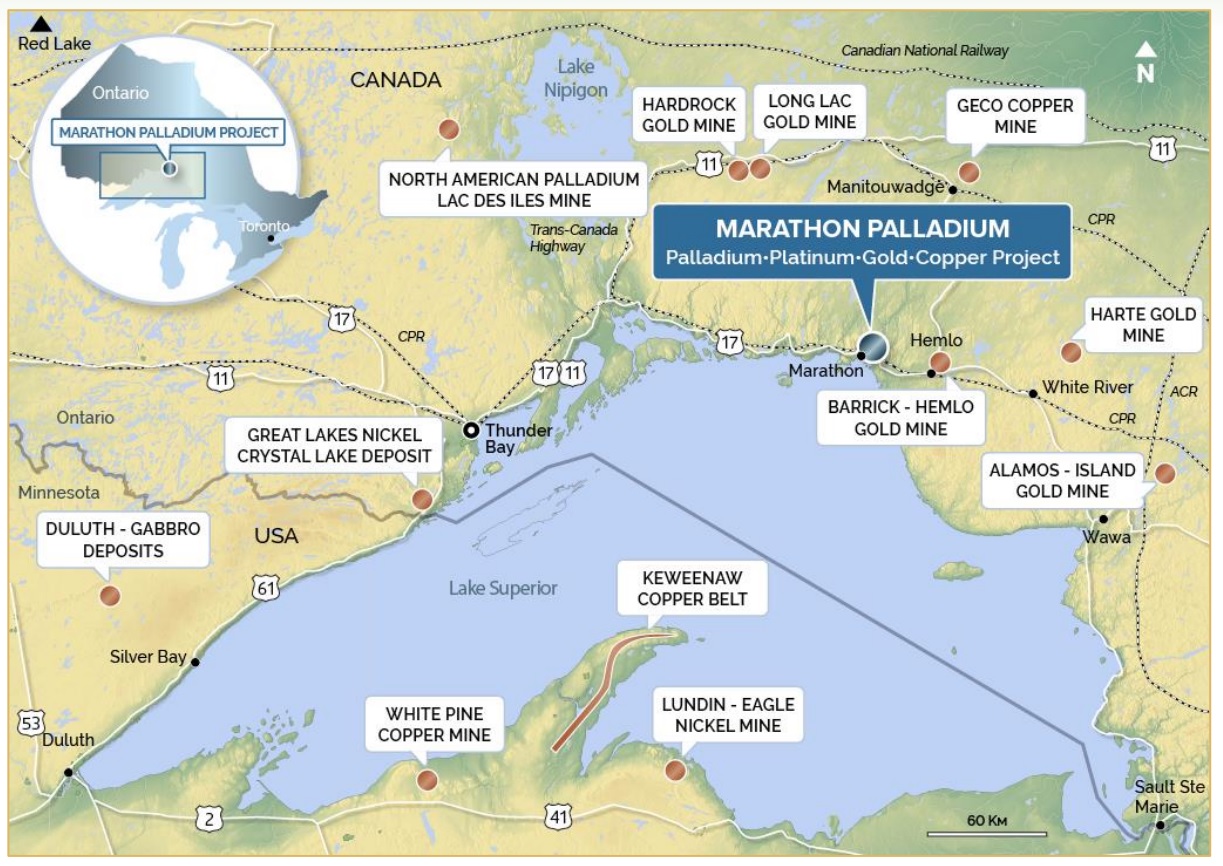
Generation Mining (GENM.TO) has confirmed it has exceeded the minimum spending requirement included in the purchase agreement for the Marathon project from Sibanye-Stillwater (SBSW). Generation Mining was allowed to earn an 80% stake in the project by spending C$10M on exploration and relevant studies on the project, and has now completed this within just 16 months after entering into the definitive agreement.
Both companies have now formed an 80/20 joint venture agreement, which means Sibanye-Stillwater now needs to start contributing 20% of the expenditures on the project. If the South African company doesn’t do so, its stake gets diluted down to less than 20%, even ahead of the completion of the feasibility study which is the trigger for Sibanye to exercise its 31% ‘clawback right’ where it can buy back 31% of the project by spending 31% of the capex (and subsequently obviously funding its 51% portion of the remaining capex).
We asked CEO Jamie Levy what happens if Sibanye-Stillwater gets diluted down now until the completion of the feasibility study, but subsequently decides to exercise its right to get to a 51/49 joint venture. According to Levy, Sibanye-Stillwater would have to make a payment equal to three times the exploration expenditures it was required to contribute before subsequently exercising the back-in right. So in other words, if Generation now spends C$2M to which Sibanye doesn’t contribute a dime, Sibanye will be required to make a C$1.2M payment to Generation Mining (three times 20% of C$2M) before it can exercise its claw back right.
An interesting situation and the reaction of Sibanye-Stillwater on Generation Mining’s first cash call will be very interesting.
Disclosure: The author has a long position in Generation Mining. Generation Mining is a sponsor of the website. Please read our disclaimer.

